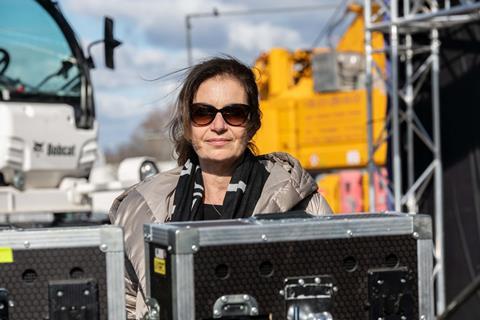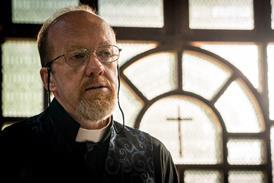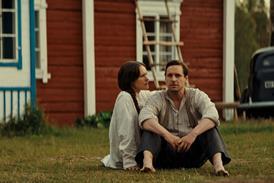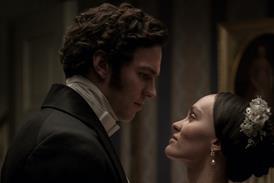
In the 20 years since the Hungarian film law was passed, ushering in a tax incentive to attract international film and TV shoots to the country, Ildiko Kemeny, managing partner of Pioneer Pictures and Pioneer Stillking, has become one of the global faces of Hungarian cinema. Many of the most prestigious international productions that have headed to the territory, drawn by the 30% tax incentive and fast-expanding studio facilities, have worked with her. Kemeny’s co-producer credits in the last two years alone include Poor Things, Maria, Dune: Prophecy and FBI: International.
For Ellen Kuras’s awards season contender Lee, starring and produced by Kate Winslet, Hungary stood in for Germany, France and the UK, and a military base in Csobanka was used to recreate the Dachau concentration camp. Kemeny has just finished filming on Netflix TV drama series Death By Lightning, with Game Of Thrones producers David Benioff and DB Weiss, about the 1881 assassination of US president James Garfield.
Kemeny’s reputation is such that, when Hungarian film commissioner Csaba Kael hosted a ‘Made in Hungary’ dinner in London recently, he called on Kemeny to give a speech to UK producers on why they should bring their productions to Budapest.
It helps that she is so well-connected. Born and raised in Budapest, Kemeny moved to the UK to study at the National Film and Television School (NFTS), where she met UK producer Andrew Macdonald. One of her first projects was with Macdonald and his brother Kevin on a TV documentary about their grandfather Emeric Pressburger. The Making Of An Englishman (1995) recounted how Hungary-born Pressburger ended up in London in 1935 and became Michael Powell’s partner on classic films such as Black Narcissus and The Red Shoes.
“They brought in Channel 4, I brought in Hungarian TV and we made a great documentary,” says Kemeny of the film, for which she received an associate producer credit. “It was actually Kevin’s directing debut.”
After graduating from the NFTS, Kemeny worked with her husband Robert Buckler’s production company Renegade Films on projects primarily in the UK. However, her focus switched back to Budapest after the incentive was introduced in 2004. “Industry friends sent me scripts wondering if I could talk to them potentially about filming in Hungary, both from the creative point of view as well as from the tax rebate point of view,” she says.
Kemeny still has a “double life” between the UK and Hungary, but most of her work is done in Budapest. Pioneer Pictures, which she set up in 2005, announced its joint venture to co-produce and service projects in Budapest with global outfit Stillking Films in 2009. “We partnered up because they brought in what we didn’t have — the American market,” she says.
This opened the way for Kemeny to work with US studios and, later, the streamers. Last year, while the UK industry suffered the consequences of Hollywood strikes and international activity slowed to a trickle, Hungary remained busy. “We were lucky to have projects like the Dune: Prophecy series [for HBO Max],” she says. “While it was a US show, most of the cast were on [UK] Equity contracts. It was giving jobs to hundreds of Hungarians.”
As a co-producer, Kemeny’s role is to get the most production value for the funding available. “[We manage] the tax rebate maximisation, engage the best local crew, cast and locations and I am around on sets as much as possible,” explains Kemeny.
She continues to hatch her own projects, and is working on Laszlo Nemes’ third feature Orphan, possibly to surface in time for Cannes next year, and for which Kemeny has high hopes. The Hungary-UK-France-Germany co-production, with Pioneer as lead producer, is a family story told through the eyes of a 12-year-old boy and set after the Hungarian uprising of 1956.
“When we were in Berlin in February meeting with potential financiers and distributors, the reaction was amazing,” she says. “The feedback was that we’re making something that is a universal story.”















![[L-R clockwise] 'Anora', 'A Complete Unknown', 'Conclave', 'The Apprentice'](https://d1nslcd7m2225b.cloudfront.net/Pictures/274x183/6/5/3/1442653_casting_918941.jpg)

!["Within two weeks [of moving to Northern Ireland] I met Kneecap, the biggest caners in Belfast," says Peppiatt](https://d1nslcd7m2225b.cloudfront.net/Pictures/274x183/5/3/9/1442539_kneecap1creditpeadarogoill_298103.jpg)







No comments yet